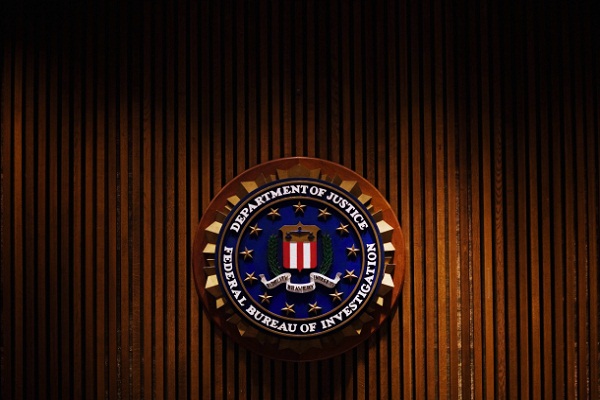A federal judge tells the company to comply with the FBI’s warrantless National Security Letter requests for user details, despite ongoing concerns about their constitutionality.
A federal judge has ruled that Google must comply with the FBI’s warrantless requests for confidential user data, despite the search company’s arguments that the secret demands are illegal.
U.S. District Judge Susan Illston in San Francisco rejected Google’s request to modify or throw out 19 so-called National Security Letters, a warrantlesselectronic data-gathering technique used by the FBI that does not need a judge’s approval. Her ruling came after a pair of top FBI officials, including anassistant director, submitted classified affidavits.

The litigation taking place behind closed doors in Illston’s courtroom — a closed-to-the-public hearing was held on May 10 — could set new ground rules curbing the FBI’s warrantless access to information that Internet and other companies hold on behalf of their users. The FBI issued 192,499 of the demands from 2003 to 2006, and 97 percent of NSLs include a mandatory gag order.
It wasn’t a complete win for the Justice Department, however: Illston all but invited Google to try again, stressing that the company has only raised broad arguments, not ones “specific to the 19 NSLs at issue.” She also reserved judgment on two of the 19 NSLs, saying she wanted the government to “provide further information” prior to making a decision.
NSLs are controversial because they allow FBI officials to send secret requests to Web and telecommunications companies requesting “name, address, length of service,” and other account information about users as long as it’s relevant to a national security investigation. No court approval is required, and disclosing the existence of the FBI’s secret requests is not permitted.
Because of the extreme secrecy requirements, documents in the San Francisco case remain almost entirely under seal. Even Google’s identity is redacted from Illston’s four-page opinion, which was dated May 20 and remained undisclosed until now. But, citing initial filings, Bloomberg disclosed last month that it was Google that had initiated the legal challenge.
While the FBI’s authority to levy NSL demands predates the Patriot Act, it was that controversial 2001 law that dramatically expanded NSLs by broadening their use beyond espionage-related investigations. The Patriot Act also authorized FBI officials across the country, instead of only in Washington, D.C., to send NSLs.
EFF’s separate challenge
Illston, who is stepping down from her post in July, said another reason for her decision is her desire not to interfere while the Ninth Circuit Court of Appeals is reviewing the constitutionality of NSLs in an unrelated case that she also oversaw.
In that separate lawsuit brought by the Electronic Frontier Foundation on behalf of an unnamed telecommunications company, Illston dealt a harsh blow to the bureau’s use of NSLs.
EFF had challenged the constitutionality of the portion of federal law that imposes nondisclosure requirements and limits judicial review of NSLs. Illston ruled that the NSL requirements “violate the First Amendment and separation of powers principles” and barred the FBI from invoking that language “in this or any other case.” But she gave the Obama administration 90 days to appeal to the Ninth Circuit, which it didon May 6.
Neither the FBI nor Google responded to requests for comment. (In March, Google began publishingsummary statistics about NSLs it received, making it the first major Internet company to do so.)
These aren’t the first cases to tackle whether NSLs, including gag orders, are constitutional or not. In a 2008 ruling (PDF), the Second Circuit Court of Appeals handed down a mixed decision.
A three-judge panel of the Second Circuit took an odd approach: the judges agreed that the “challenged statutes do not comply with the First Amendment” but went on to rewrite the statute on their own to make it more constitutional. They drafted new requirements, including that FBI officials may levy a gag order only when they claim an “enumerated harm” to an investigation related to international terrorism or intelligence will result.
Illston’s decision in the Google NSL case said that the FBI had submitted “classified” evidence “intended to demonstrate that the 19 NSLs were issued in full compliance with the procedural and substantive requirements imposed by the Second Circuit.”
That includes classified declarations submitted by Stephanie Douglas, executive assistant director of the FBI’s national security branch, and Robert Anderson, assistant director of the counterintelligence division at FBI headquarters.
A 2007 report by the Justice Department’s inspector general found “serious misuse” of NSLs, and FBI director Robert Mueller pledged stricter internal controls. Mueller has also called the investigative technique invaluable.
Update 10 a.m. PT: In a previously unreported lawsuit in Manhattan, the Justice Department has asked a judge to grant its “petition to enforce” a NSL that the FBI sent to Google for confidential user data. Thesearch company is fighting the request.
Source: cnet
'Reference about Freemason in Eng' 카테고리의 다른 글
| Real Assets, Economic Collapse & More: David Quintieri, Author of "The Money GPS" (0) | 2013.06.03 |
|---|---|
| Syrian opposition fighters arrested with chemical weapons (0) | 2013.06.03 |
| Israel and Greece Sign Strategic Agreement (0) | 2013.06.03 |
| The Mystery of the Free Syrian Army’s M40 Recoilless Rifles (VIDEO) (0) | 2013.06.02 |
| Army Units Kill Terrorists in Several Areas (0) | 2013.06.02 |